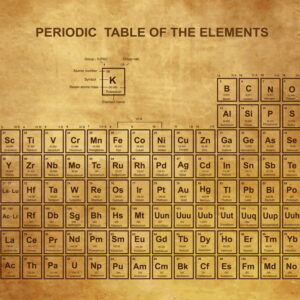Extract from book- The physics of healing with microdoses”
“Hering’s law and chronic disease
The concept of chronic disease is extremely important in homoeopathic therapeutic doctrine. Mention has already been made of Hering’s Law of the movement of symptoms, and how it governs the relationship between acute and chronic disease as well as between somatic and mental disease. On the basis of their experience with this law and its effects homoeopathic physicians attribute much of today’s chronic disease to the indiscriminate allopathic use of medicines which have a suppressive effect on acute conditions and transform them into chronic ones.
The concern of homoeopathic physicians is entirely justified. About one half of the American population suffers from a chronic disease, and over 23 million (about 1 in 9) suffer some impairment of mobility as a consequence.
Of the 23 million whose mobility is impaired, 15.5% have heart disease, 14.1% arthritis or rheumatism, 6.9% an impairment of the back or spine, 6.7% an impairment of the lower extremities or hips, 5% asthma or hay fever, 4.8% a visual impairment, 4.6% hypertension without heart involvement, and 4.4% a mental or nervous condition. To this listing should be added the various kinds of cancer which homoeopathy regards as chronic diseases and which claimed the lives of 350,000 Americans in 1973 and over 400,000 in 1980. By the end of the century about 500,000 Americans are expected to die from cancer every year; one man in five, and one woman in four, will develop this disease.
Various explanations and theories of chronic disease, and its rising incidence, have been propounded by allopathy. But little or no attention has been paid to the possibility that it results in part from the incorrect medical treatment of acute conditions.
As the following passages from the homoeopathic literature indicate, this school holds that the natural progress and stages of a patient’s illness have to be respected by the physician-at the risk of turning acute conditions into chronic ones:
I find that very often it is lucky for a patient when his skin remains uncured, that is, not cured at the expense of health. . . skin eruptions are, for Hahnemann, nature’s way of quieting an internal disease which threatens vital organs, by developing an external local malady; the object being to keep diseased this non-essential part. . . .In regard to local affections even the popular mind has traditions as to the danger of curing them locally. Many an old woman (in the past, anyway) jealously guarded her “bad leg” because she had, or knew of, the dire consequences following the cure of such an affliction. And has not one been told “he had a rash all over his back before, and when that was cured, his asthma came: he always thought it was that!” So much so that one has got into the habit of asking a new asthma patient, “When did you have an eruption?” “Never”, and the next time, “you asked me about an eruption, and I told you I never had it, but now I remember”.
Many forms of suppression will be homoeopathic remedy, such as the reappearance of skin eruptions suppressed by various ointments, catarrhal complaints, and gonorrhoeal discharges suppressed by injections, followed by rheumatic troubles. Leucorrhoeal discharges stopped by local treatments, followed by ovarian and uterine troubles. Symptoms will disappear in the reverse order of their appearance: that is, under homoeopathic treatment the last symptoms to come are the first to go. . . .The return of old symptoms is one of the best signs that you are really curing your patient and must not be interfered with
Extract from Divided Legacy-
“The theory that the public be coaxed back to orthodox medicine by improving the education of physicians was a prime motive for the founding of the American Medical Association in 1847.
That physicians in 1844 were convinced of the fruitlessness of legislative prohibitions against irregular practice is seen in the fact that those physicians who were representatives in the legislature voted for repeal of the 1830 law. The medical society decided to rely henceforth on its own powers of admission and expulsion and not on the legislature which too easily rocked with the passing waves of public sentiment. One county society wrote in 1845 :
Law is the expression of the public will, without which it can neither be enacted, sustained, nor executed. The written statute is therefore a dead letter whenever the public mind is arrayed against it. And this is preeminently the case with regard to the medical law of this State at the present time. Empiricism is everywhere rife, and was never more arrogant, and the people love to have it so. That restless agrarian spirit that would always be leveling down, has so long kept up a hue and cry against calomel and the lancet, that the prejudices of the community are excited against, and their confidence in the medical profession greatly impaired, and no law could be enforced against the empiric and nostrum vendor. Every attempt of the kind would only create a deeper sympathy in their favor, and raise a storm of higher indignation against the profession. This spirit cannot be controlled by arbitrary legislation.
That public opinion was aroused against any monopoly of medical practice by the orthodox profession is seen also from the report of the legislative committee which reported on the bill and recommended passage :
It is also clear to the minds of your committee that such enactments operate to restrain rather than to incite research and investigation into the hidden truths of the science, by placing it in the power of one school of the profession, encircled as they now are by the strong arm of the law, to apply the epithets of quack and empiric with great force and effect to those (perhaps equally scientific with themselves) who in their investigations venture to overstep the prescribed limits of the legalized profession, and discover what to their minds is evidence of error in the old system, and reason sufficient to induce them to propose a new and different one, a result decidedly to be deprecated by the people at large, when viewed with reference to their true interests, which must be supposed to favor such a state of our laws as will induce to the greatest advances of the science of medicine and to the most thorough investigation by all who profess its knowledge.”





